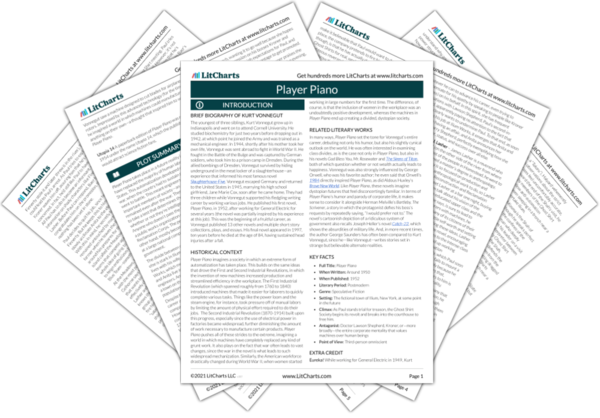It’s almost as if Rudy respects Paul because Paul respects
him: by honoring his work as a machinist, Paul helped Rudy feel useful and relevant, even though he also put Rudy out of a job. This suggests that a lot of the tension between the working class and the elite has to do with self-worth and dignity (or the lack of these things). Rudy has every reason to dislike Paul, since Paul played such a big role in taking away his job. And yet, he goes out of his way to
celebrate Paul. This indicates that people are less likely to resent the elite if they feel valued and appreciated. In this moment, though, only Rudy feels valued by Paul, which is why everyone else in the bar clearly dislikes Paul.


